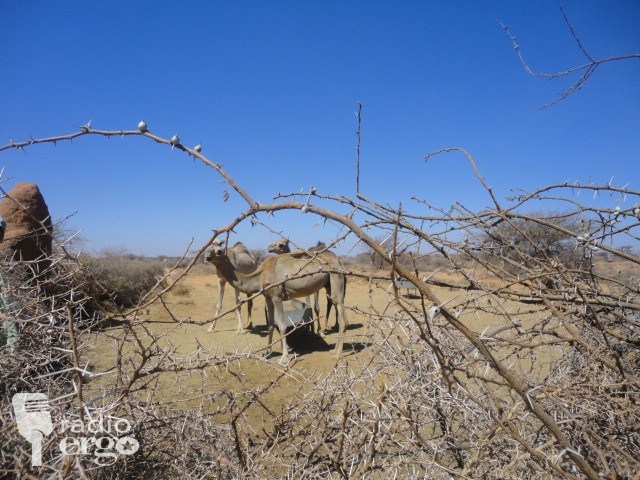
Thursday January 11, 2018
Herders in Mahaday district of southern Somalia’s Middle Shabelle region complain that they are losing their goats to an outbreak of disease caused by water-borne parasites.
According to the social welfare representative in the district, Salah Fulel Haji, 430 pastoralist families are being affected by the livestock disease in areas where the water has been contaminated after seasonal flooding of the river Shabelle.
Veterinary experts say the disease killing the goats is Fascioliasis, an infectious disease caused by Fasciola parasites, which are flat worms referred to as liver flukes. The adult liver flukes get into the bile ducts and liver of infected animals, such as sheep and cattle, and can also infect people.
advertisements
Yusuf Hamud lives in Aw-baale village. He said only seven of his 150 goats had survived this latest outbreak of disease.“The disease started to spread at the end of October and the animals are still dying now – my last goat died on 25th December,” Yusuf said.
Dahir Mohamed Hassan in Dibir village, 25 km east of Mahaday town, said he had only 29 left of his original 250 goats. His family of six moved to town to stay with relatives, leaving the remaining animals in Dibir under the care of his neighbours.
“I was told that four more [goats] have become infected with this disease, so I want to sell off the livestock towards the end of this week,” Dahir told Radio Ergo.
Local people claim that up to 4,000 goats have died in the last three months of this particular disease. It is extremely difficult to verify such numbers, although experts say that Fascioliasis alone would most likely not cause such high fatalities. The disease normally appears after river flooding, when stagnant flood water becomes contaminated by livestock faeces. Other factors also decrease the immunity of animals during the flooding season, such as the windy cold climate that causes bronchitis and pneumonia.
Security is poor in this area and access for aid organisations is difficult. Moreover, the pastoralists are nomadic, making veterinary follow up more complicated.
Local people complain that they have been ignored by aid agencies and have received no veterinary services recently. Mahaday’s social welfare representative said people were constantly asking for assistance.
However, the Food and Agriculture Organisation (FAO) said it completed a vaccination campaign against Peste des Petits Ruminants and Sheep and Goat Pox (PPR/SGP) last October across Somalia, in addition to two rounds of earlier treatment between March and June 2017.